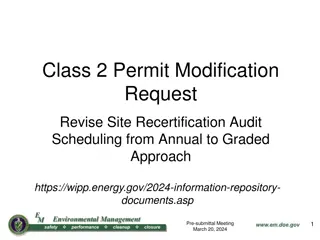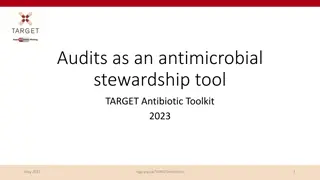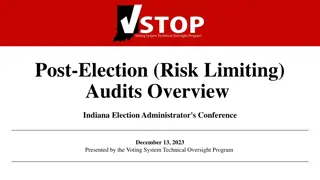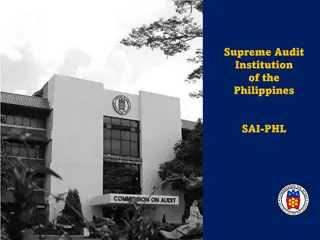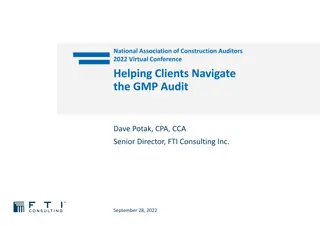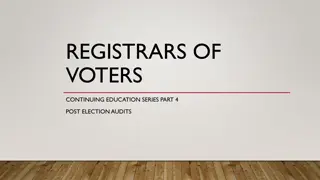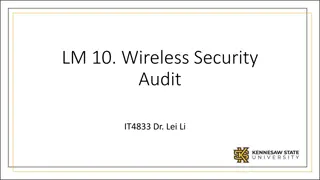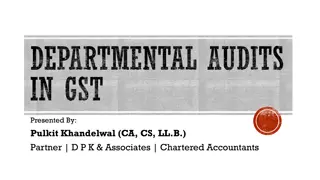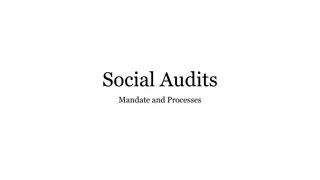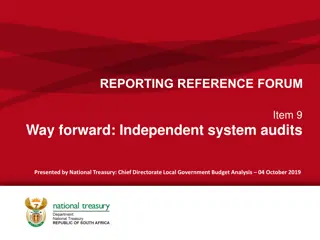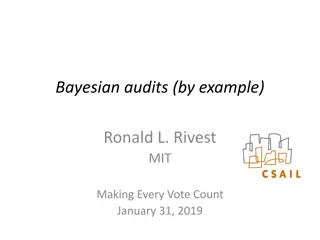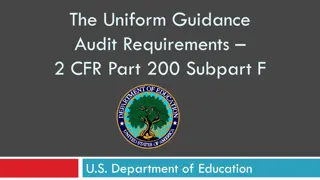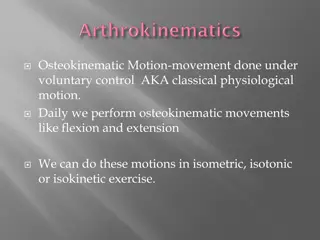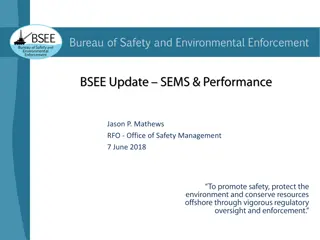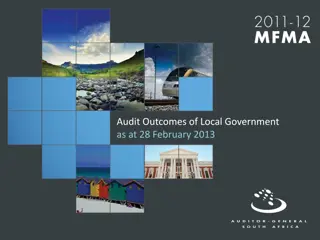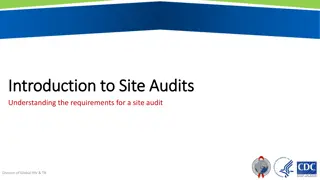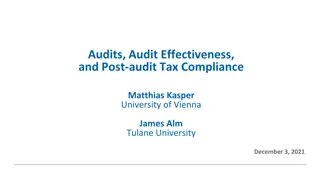
Benefits of Joint Audits in Tax Compliance and Administration
Explore the advantages of joint audits over unilateral audits in the context of tax compliance and administration. Discover how joint audits enhance efficiency, promote uniformity, and address challenges in multistate tax assessments. Learn about initiatives like MTC's Joint Audit Program and the European Union's efforts towards collaborative tax audit frameworks.
Download Presentation

Please find below an Image/Link to download the presentation.
The content on the website is provided AS IS for your information and personal use only. It may not be sold, licensed, or shared on other websites without obtaining consent from the author. If you encounter any issues during the download, it is possible that the publisher has removed the file from their server.
You are allowed to download the files provided on this website for personal or commercial use, subject to the condition that they are used lawfully. All files are the property of their respective owners.
The content on the website is provided AS IS for your information and personal use only. It may not be sold, licensed, or shared on other websites without obtaining consent from the author.
E N D
Presentation Transcript
5th International Conference on Taxpayer s Rights Joint Audits and Taxpayers Rights Assist. prof. dr. Nevia i in- ain, LL.M., Vienna University of Economics and Business STAND: JULI 2017
Joint audits benefits over unilateral audits JA joint audit of 2 or more taxpayers of common or complementary interest to 2 or more tax administrations, conducted in a coordinated way. more benefits than unilateral audits (better, quicker and more streamlined understanding of facts - should avoid 2x or non-taxation) But also more problems (procedural differences, language barriers, culture clashes) in comparison to pure simultaneous audits Research shows that the differences in tax procedures between EU MS are of a more technical than fundamental nature (right to be heard, notified, advisor, statute of limitation ) however, this is still a big impediment. SEITE 2 FUSSZEILE
Multistate Tax Commission (MTC) MTC s Joint Audit Program - authorized by the Multistate Tax Compact and was initiated in 1971 No right to directly assess the tax, but rather to conduct an audit and propose its findings to the participating states Currently, of the 28 states participate in the Audit Program, 27 participate in the MTC s Income and Franchise Tax Joint Audit Program, and 17 participate in the MTC s Sales and Use Tax Joint Audit Program Aim: efficiency (instead of multiple unilateral audits); uniformity (of interpretation of law) Number of joint audits in the Audit Program is on the rise SEITE 3 FUSSZEILE
Multistate Tax Commission (MTC) MTC s Audit Committee has representatives of tax agencies of the participating member states Committee responsibilities: MTC audit selection and overseeing the audit program Also, taxpayers can request to be considered for a joint audit Subpoena issued by the participating state rather than the MTC Tax assessments sole responsibility of the participating states SEITE 4 FUSSZEILE
European Union joint audits Direct taxes - DAC 7 22 March 2021 Previously Art. 11(2) active participation of foreign officials in a local audit (uncertanties: form of EoI, roles of foreign inspectors, their boundaries, applicable procedural law ) old Art. 11 revamped activities conducted under the law of the host state - new Art. 12a other form of cooperation, not mere form of EoI Indirect taxes RAC VAT and RAC Excises - Art. 7(4a) and 28(2a) RAC VAT; Art. 12 RAC Excise SEITE 5 FUSSZEILE
European Union - DAC 7 Primary law: Implementation of EU law Art 51 European Charter when JA based on Art 12a DAC JA must be conducted by respecting the fundamental rights Limitations must be justified (Art. 52 EUCh) European Convention of Human Rights DAC 7: Only rudimental provisions on rights (reference to GDPR in Art. 25) TP rights still governed by national law Commission s Proposal significantly watered down (no JA on request of the TP, no specific grounds for MS to refuse the request for a JA) SEITE 6 FUSSZEILE
European Union - DAC 7 Most important novelty: DUPLICATION OF STANDARD (Art. 12(3) DAC): Applicable law of the host state applies also to the inspectors of the sending state BUT The limits of the law of the sending State remain = Always the stricter standard will probably apply - Evidence collected (interviews, records) always together with the officials of the host state (never alone). In each MS where activities take place appointment of an official coordinating the JA. SEITE 7 FUSSZEILE
European Union - DAC 7 Appeal process: Evidence conditions as if it was a unilateral host state audit only (incl. complaint, review, appeal) collected assessment incl. admissibility under same Persons subject to audit and affected by it same rights and obligations as if it was a unilateral host state audit only (incl. complaint, review, appeal) - Possible to have 2 appeal processes in parallel? SEITE 8 FUSSZEILE
European Union - DAC 7 Conclusions: - new Art. 12a sets a new standard for legal certainty and taxpayer s rights yet there is still a long way to go - Duplication of standards (Art. 12(3) DAC) conversion of tax rules in practice? - Charter of taxpayer s rights EU Commission Action Plan 15/7/2020, point 17, Recommendation taking stock of taxpayer s rights existingunder EU law SEITE 9 FUSSZEILE
Institute for Austrian and International Tax Law Welthandelsplatz 1, Building D3, 1020 Vienna Austria Dr. Nevia i in- ain, LL.M. (Sorbonne) T +43-1-313 36-DW 5924 nevia.cicin-sain@wu.ac.at www.wu.ac.at/taxlaw 10

